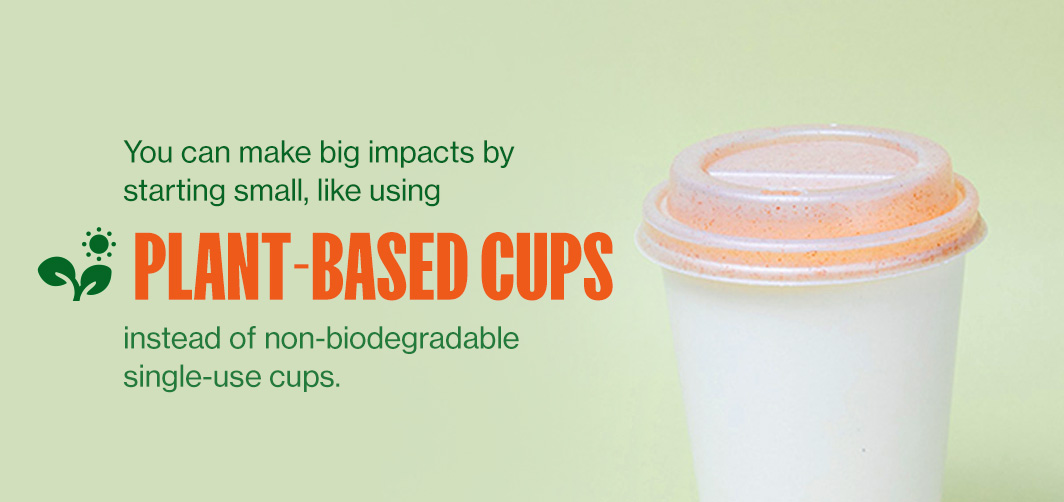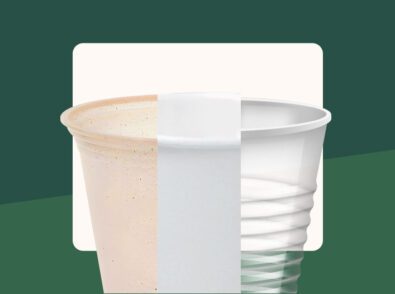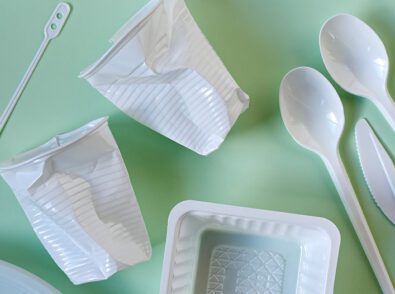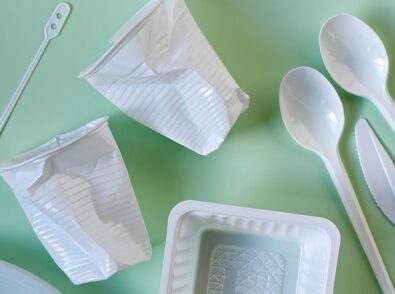The Impact of Plastic Cups

Single-use plastic cups are popular for picnics, company kitchens, and events. They’re cheap, don’t require washing, and save time. However, these cups have significant negative impacts on the environment, like polluting the environment and releasing harmful chemicals.
By 2020, more than 219 million U.S. citizens were using disposable cups and plates. Plastic production worldwide has skyrocketed to an excess of more than 450 million metric tons annually, with single-use plastic comprising a significant portion of that.
It is crucial to combat the harmful effects of plastic cups by reaching for sustainable alternatives.
Environmental Impact of Plastic Cups
Disposable plastic cups are a significant source of pollution in landfills and the environment. Like plastic bags and utensils, they can damage oceanic and land-based wildlife. If animals consume enough polystyrene cups, they may suffer intestinal blockage or suffocation. Since they’re a significant source of pollution, these cups become semi-permanent fixtures in many environments.
How Long Do Plastic Cups Take to Decompose?
Under ideal conditions, single-use plastic may take between 200 and 450 years to decompose. Plastic cups in landfills may decompose faster than those in the ocean or the environment.
What Happens to Discarded Plastic Cups?
Most discarded plastic cups make the journey to a local landfill, since few recycling plants process them. Most single-use cups consist of non-recyclable plastics like polystyrene or polyethylene.
Even when the cup consists mainly of recyclable plastic, contamination with a secondary plastic can complicate things. Plastic cups are considered a significant source of contamination in plastic recycling, unintentionally contaminating otherwise pure batches of plastic.
In the UK, around 3% of plastic cups undergo recycling. In the U.S., we recycle 21% of recyclable products annually, with single-use plastic products not constituting a significant portion of that percentage.
Sustainable Alternatives to Plastic Cups
Switching to sustainable cup options helps solve the problem of disposable cups in landfills. Biodegradable, compostable, recyclable, and reusable options include metal, agave, and wood. All of these are reusable, and agave is either compostable or reusable and recyclable.
These tips can help you make the shift to sustainable cup options:
- Replace packs of disposable cups with biodegradable or compostable cups.
- Purchase a sustainable, reusable coffee cup or water bottle.
- Carry a reusable straw as an alternative to grabbing a plastic straw.
- Support restaurants and cafés that offer reusable cups or will fill your personal reusable cup.

You can make big impacts by starting small, like using plant-based cups instead of non-biodegradable single-use cups.
References
- https://www.statista.com/statistics/284939/usage-of-disposable-cups-and-plates-in-the-us-trend/
- https://www.earthday.org/fact-sheet-how-much-disposable-plastic-we-use/
- https://wwf.org.au/blogs/the-lifecycle-of-plastics/
- https://www.wrap.ngo/resources/report/single-use-cups-and-go-fibre-composite-food-packaging
- https://plasticmakers.org/plastic-recycling-facts/state-of-plastics-recycling/




